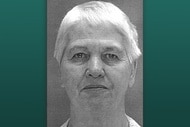Wisconsin Man Who Killed Girlfriend’s Parents Over Social Distancing Row Gets Life Without Parole
Khari Sanford didn't want to abide by social distancing rules placed by his girlfriend's parents, Dr. Beth Potter and Robin Carre, while staying at their home and so he killed them and dumped their bodies.

A Wisconsin man convicted of kidnapping and murdering his girlfriend’s parents will spend the rest of his life behind bars.
Khari Sanford, 21, was found guilty by a Dane County jury in May for the 2020 murders of Dr. Beth Potter, 52, and her husband, Robin Carre, 57 — the parents of his girlfriend, Miriam Carre, with whom the young couple had been living at the time.
Though the verdict came with a mandatory life sentence, Sanford appeared for a hearing on Wednesday to determine whether or not he’d be eligible for parole.
Judge Ellen Berz, citing premeditation and Sanford’s alleged lack of remorse, ruled the defendant would not be eligible, according to NBC Madison affiliate WMTV.
“You took a step that no human who wants to live in society would take,” said Berz. “It is inexplicable why these two people who only showed kindness and generosity to you and to everyone in the community… you could gun down. It makes no sense.”
Sanford’s co-defendant, Ali’jah Larrue, 20, pleaded guilty to felony murder charges in 2020 and was also sentenced on Wednesday. Larrue received eight years per victim — to be served concurrently — plus 10 years of supervision.
Though Sanford was found guilty of kidnapping the married couple from their Madison home and shooting them execution-style in the back of the head, Larrue was accused of accompanying Sanford and never notifying authorities.
Larrue claimed he had no knowledge of the kidnapping and murders beforehand and that Sanford had ordered him to drive the victims’ car.
He would become a key witness in the case against Sanford.
“Thirty months later, I still don’t know why this took place,” Larrue said at sentencing. “I blame myself every night for not calling police.”
Potter and Carre were the adoptive parents of Miriam Carre, with whom Sanford was in a relationship. The two teens lived with her parents in their Madison home, but tensions grew when Potter instructed the young couple to abide by social distancing guidelines during the height of the COVID-19 pandemic.
Sanford became upset about the restrictions, despite Potter being at higher risk for contracting the virus.
Potter tried to remedy the situation by renting an Airbnb for her daughter and Sanford, which Sanford perceived as a sign of disrespect. According to ABC Milwaukee affiliate WISN, the couple were to stay there until they could find an apartment of their own.
Instead, on March 31, 2020, a jogger found the couple in a ditch at the University of Wisconsin's arboretum. Carre, still in his underwear, was pronounced dead on the scene, while Potter, still dressed in her pajamas, succumbed to her injuries at a local hospital.
Police called it a “calculated, cold-blooded, and senseless” crime.
Dr. Potter worked as the medical director of the university’s Employee Health Services and was an associate professor in the Department of Family Medicine and Community Health, according to a tribute from the school.
Sanford was arrested on April 2 by university police and charged with two counts of first-degree murder.
A witness later said they heard the murdered couple’s daughter, Miriam, tell Sanford that her parents were wealthy and that she knew of a way to get money, according to a criminal complaint. The same person claimed that Sanford confessed to the shooting and admitted to hearing that Potter initially survived, which made Sanford fearful that she could implicate him in the double homicide.
Although Miriam Carre was never charged in connection with her parents’ murders, lawyers representing her family’s estate are trying to have her excluded from inheriting her parents’ assets, according to the Wisconsin State Journal.
Sanford previously told the court that he lives with childhood-based trauma and issues with his mental health, but admitted that Potter and Carre tried to give him a better life, according to the State Journal. Many of Sanford’s hardships were highlighted during the trial, including his time in the foster care system and multiple suicide attempts.
“Potter and Carre saw my potential, accepted my adversities, and took me in,” said Sanford. “So that was me, in the home of Beth and Robin, with mental health issues, not communicating very well, smoking weed, disobeying rules and procrastinating way too much about my future because I was too fanatically in love to care.”
Potter and Carre’s relatives were in the courtroom for Wednesday’s hearing but declined to make a statement.



























